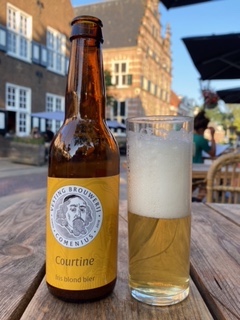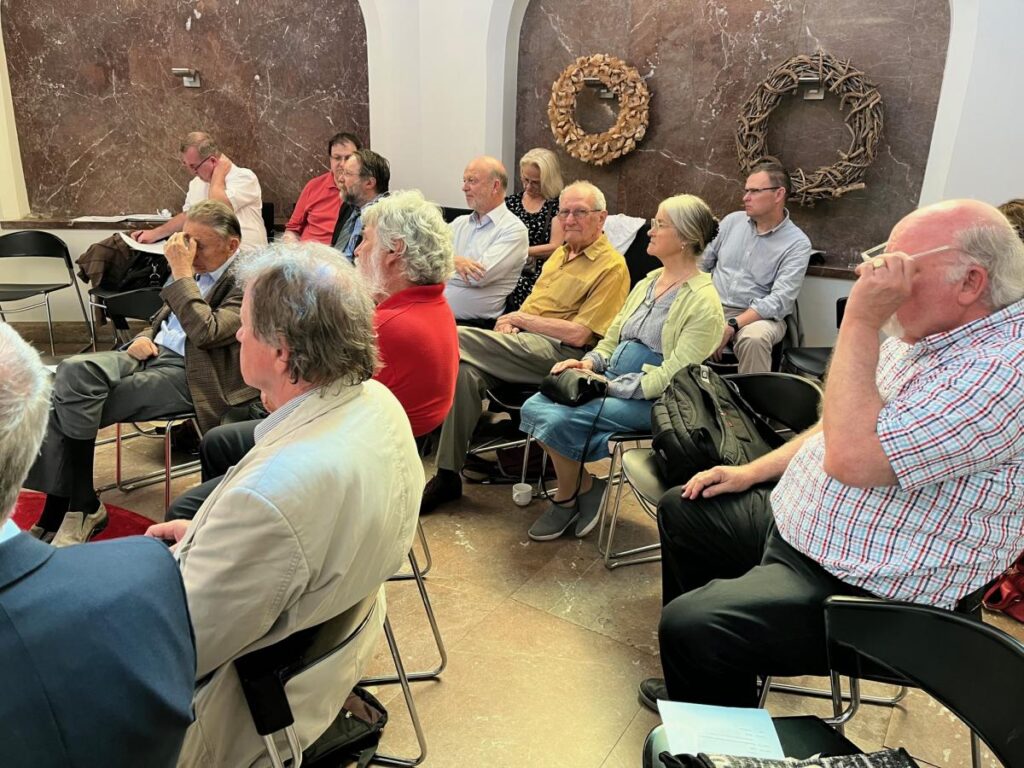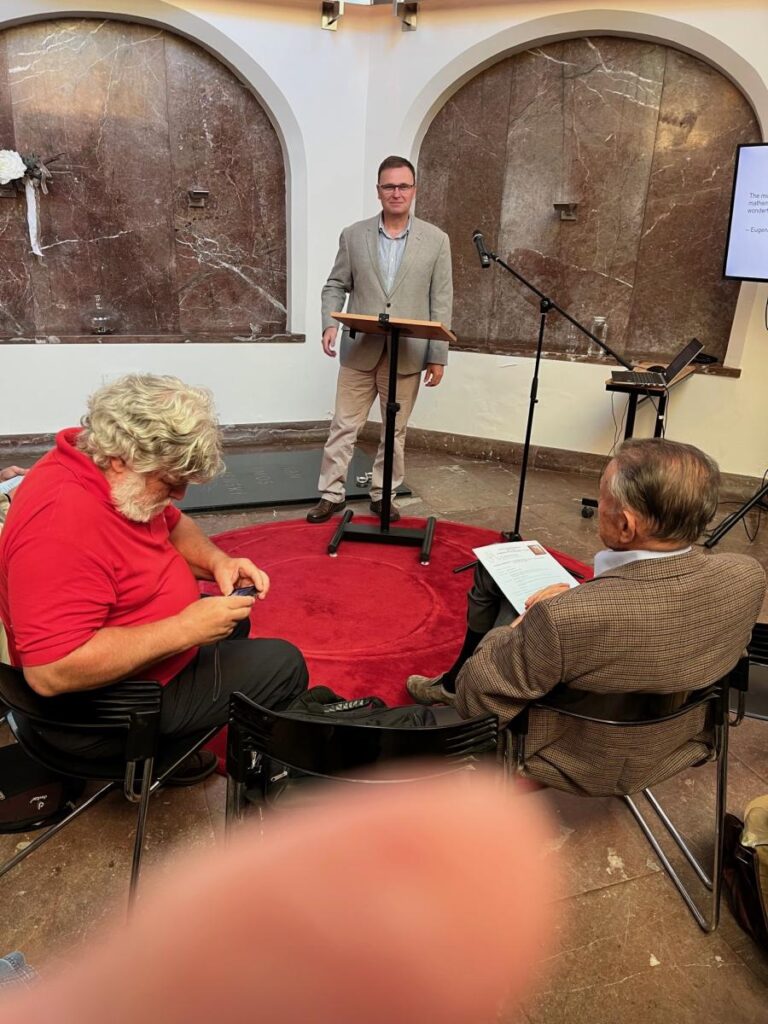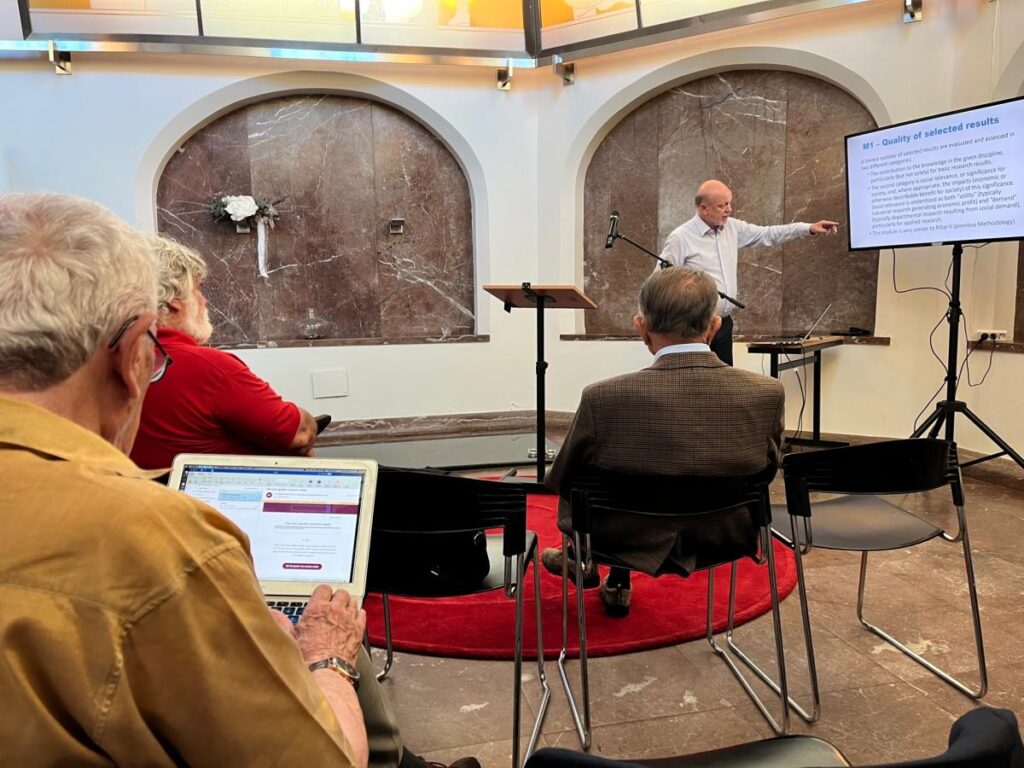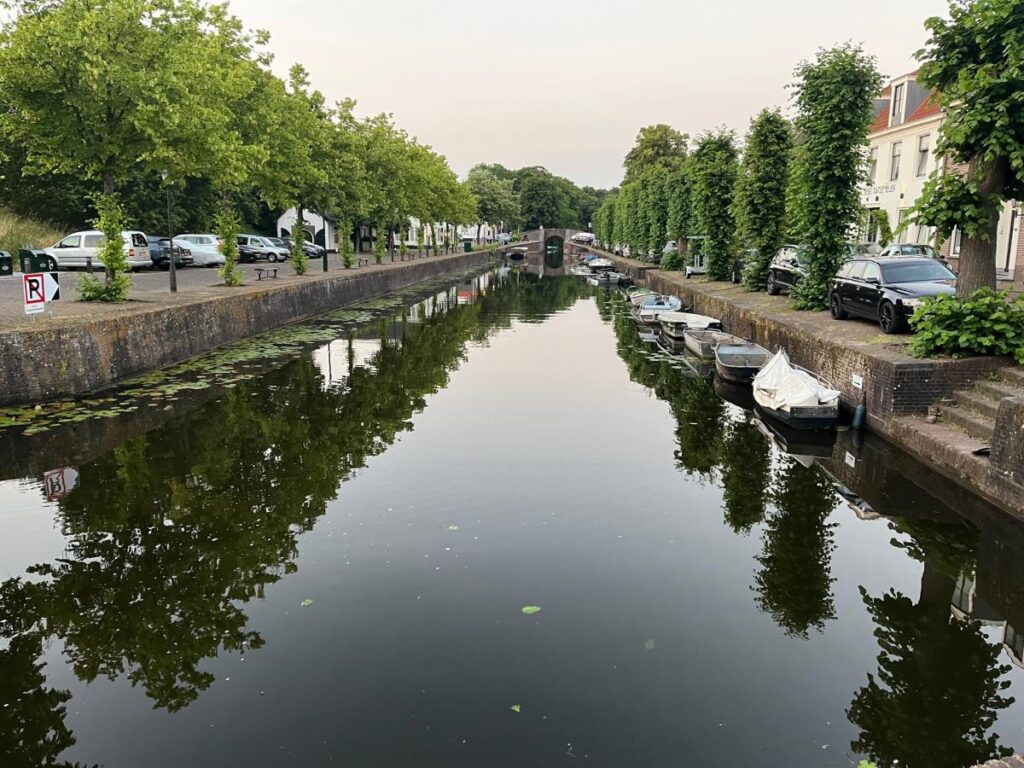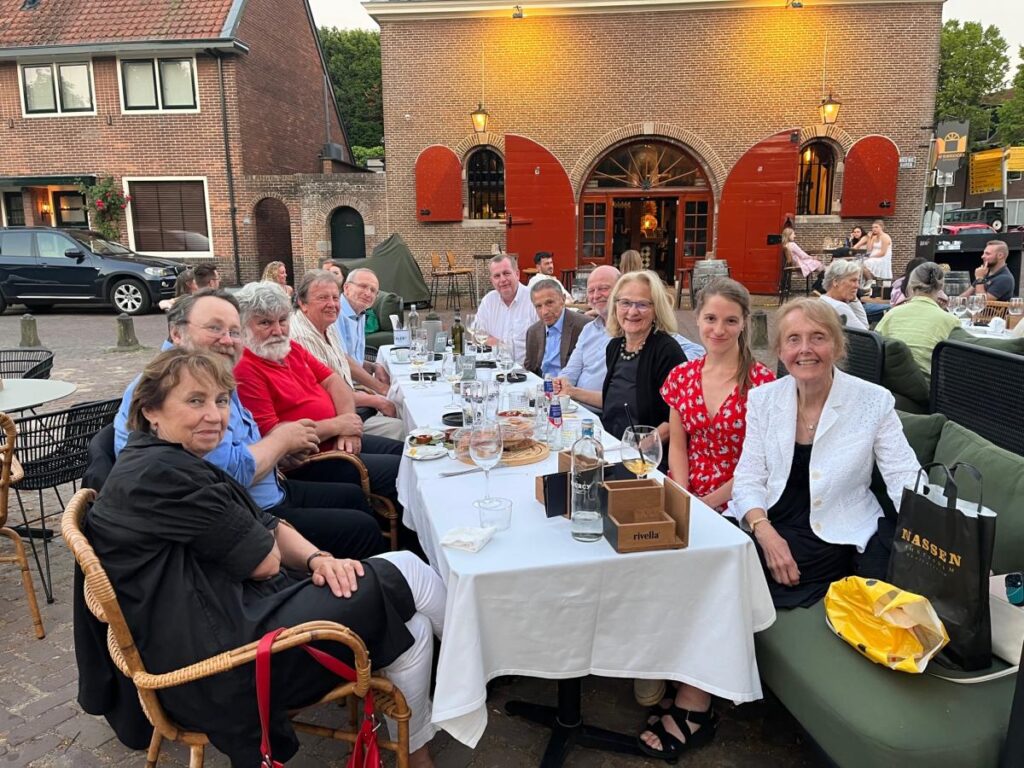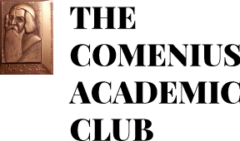2013
June, 2013 – First Conference on: „The Evaluation and Funding of Science“ at the Bohemian National Hall in New York, NY.
2014
June, 2014 – Second Annual Conference in collaboration with the Faculty of Philosophy, University of Pardubice, and with support of the Library of Václav Havel – Pardubice (Castle) June 13 – 15, 2014.
Pardubice June 13 – 15, 2014
Organized in collaboration with the Faculty of Philosophy of the University of Pardubice along with the support of the Library of Václav Havel and others.
- Pictures from the Univ. of Pardubice CAC Conference Website.
- Video Slideshow – CAC Conference June, 2014 – WMV format (15MB), m4v format (38MB)
- Copies of the conference program.
A slideshow video of the event prepared from photographs obtained by: Pavla Storkova a student at the University of Pardubice.
2015
June 2015 – 3rd Annual Conference at the Bohemian National Hall, New York, NY.
The third annual conference of the Comenius Academic Club opened in New York City at Bohemian National Hall on June 19, 2015 to an exhibit sponsored by the National Pedagogical Museum of Jan Amos Komensky in Prague:“Education for all: The Legacy of J.A.Comenius to the world„.
At the opening of the exhibit, Marketa Pankova, the Director of the museum awarded Comenius memorial medals to two CAC club members: Drs. Zdenek David and Vlado Simko, as well as the Hon. Rochelle Hendricks, Secretary of Higher Education of the State of New Jersey. A musical interlude in the program was filled by a concert of Karel Raska IV (horn) and Magdalena Raska (violin) accompanied by piano virtuoso Karen Delavan.
Saturday morning, members and guests gathered for a session on the Legacy of the Bohemian Reformation chaired by Ivo Riha. In the afternoon a session addressing Current Problems of Educational Systems was chaired by Marketa Pankova. A most provocative lecture was presented by Barron Boyd (Rhodes College, Memphis, TN) who addressed current problems of American liberal arts education and speculated on how it would be viewed by J.A. Comenius today. The Hon. Secretary Hendricks presented an analysis of public education system of the State of New Jersey, often described as being among the best in the United States.
A discussion of the current system of evaluation and funding of science in the Czech Republic was introduced by Jiri Malek in the next session. A very active and stimulating discussion followed with diverse and conflicting opinions of scientists from the Universities and the Academy of Sciences being readily evident. In summary, however, the new system was viewed positively and as an improvement over past efforts.
Sunday morning’s session was devoted to the Impacts of Chemistry on Society was chaired by Karel Raska. Jan Vilcek of New York University introduced the audience to a new class of drugs against autoimmune diseases and stressed the many contributions of immigrants to American science. Jan Konvalinka and Marcela Krecmerova of the Institute of Organic Chemistry and Biochemistry of the Academy of Sciences described significant contributions of Czech chemists in the development of drugs against the HIV virus. Advances in parasitology was discussed by Libor Grubhoffer and interesting issues of chemical technology were addressed by Jiri Drahos and Jiri Malek.
Participants expressed enthusiasm for the eclectic nature of the meeting, the exhibit of „Education for All“ under the auspices of the National Pedagogical Museum of Jan Amos Komensky and the outstanding musical interlude provided by Karel Raska IV (horn) and Magdalena Raska (violin) and piano virtuoso Karen Delavan.
Planning for next year’s meeting (2016) in Ceske Budejovice, CR has already begun. We’ll look forward to seeing you there!
Download Slideshow from CAC 2015.
2016
THE 4TH CONFERENCE OF THE COMENIUS ACADEMIC CLUB
The 4th conference of the Comenius Academic Club is behind us. The Club is grateful to the University of Pardubice for their support of the conference and its infrastructural basis. Moderators of all panels should be commended for the job well done.
About 50 participants met in the beautifully reconstructed Dačický dům in Kutná Hora. The Mayor of the town who attended the conference commented that although the reconstruction included a complex air handling system, the airconditioning was ommitted…“we will have to do something about it…“ Indeed during the first two days there was a truly tropical weather, but it did not affect the enthusiasm and attendance of all sessions. The lectures stimulated lively and often long discussion.
The atmosphere of the meeting site was further enhanced by the simultaneous „Silver festival“ with crowds of people in medieval costumes filling the historic town.
Conference participants also had an opportunity to explore the cultural treasures of Kutná Hora in a guided tour.
The planning has already started for the 2017 conference in New York.
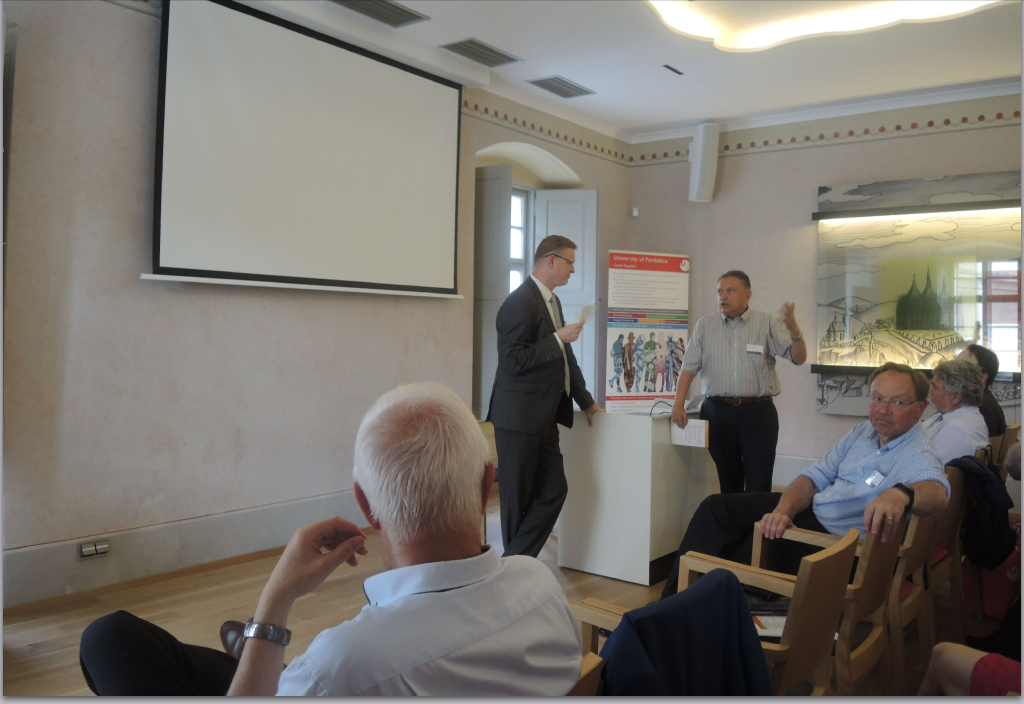
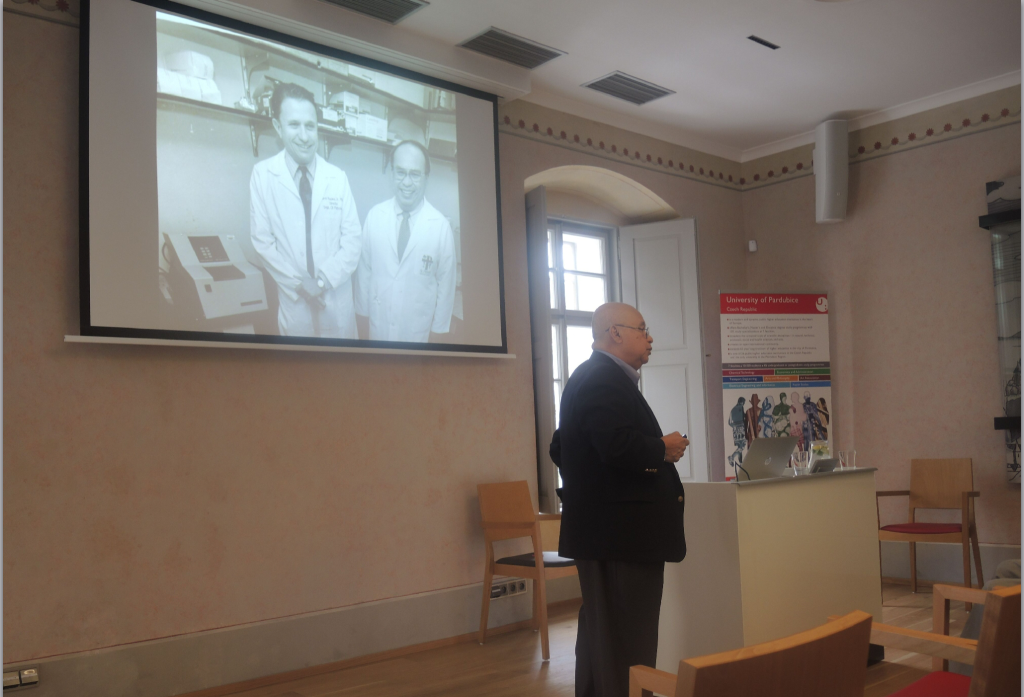

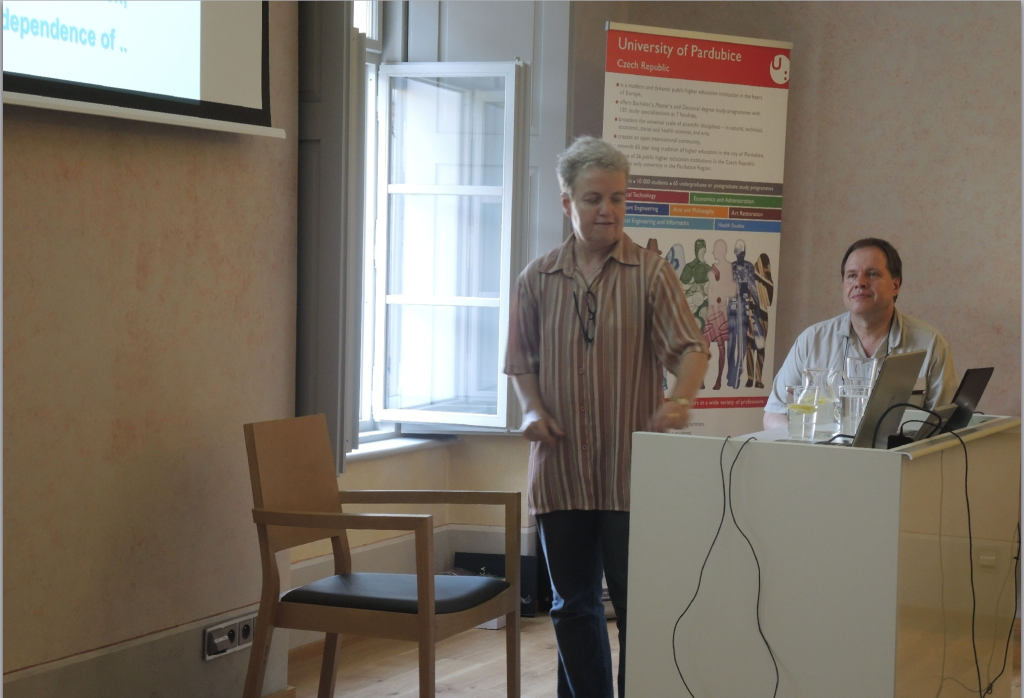
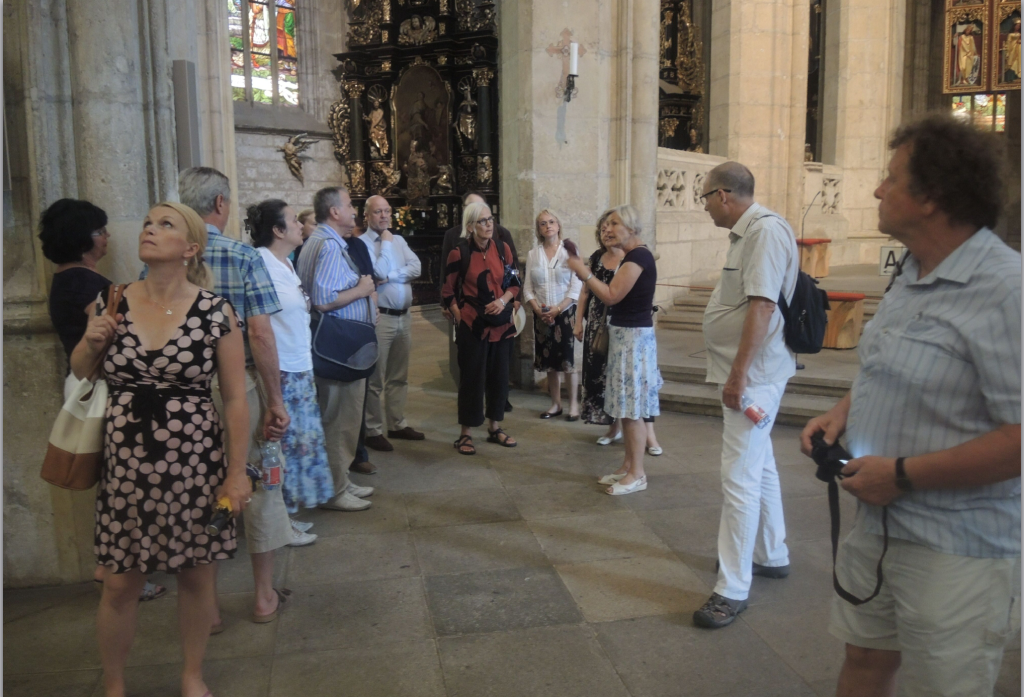

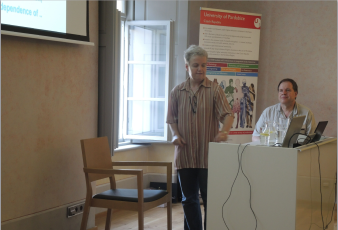
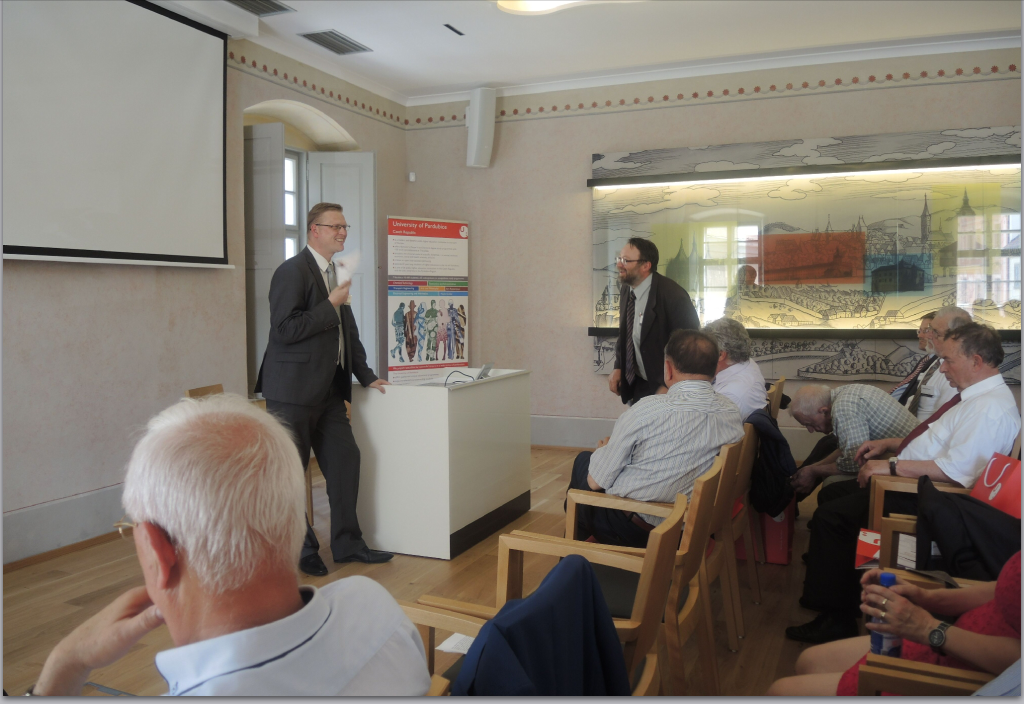
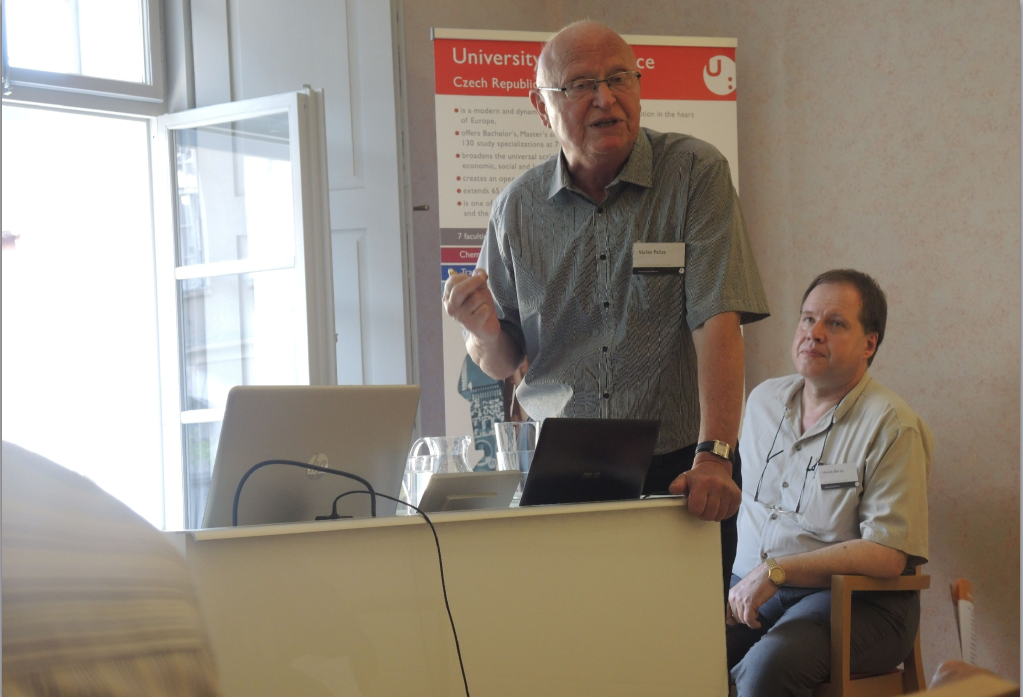
2017
THE 5TH CONFERENCE OF THE COMENIUS ACADEMIC CLUB
The Comenians met at the Bohemian National Hall in New York City between June 23 and 25, 2017.
As has been the tradition, the participants were addressed by the Consul General of the Czech Republic, Hon. Martin Dvořák. Karel Raška thanked the Consul for years of support of activities of the Czechoslovak community in the United States, in general, and academic activities of societies such as the Comenius Academic Club, in particular. He wished him much success in his new important diplomatic assignment.
The participants then met with the Ambassador of the Czech Republic to the United Nations, H.E. Marie Chatardová who introduced them to the recent activities of the Czech Republic at the Organization of the United Nations.
The first scholarly session AMERICA 2017 was devoted to the current scene at the healthcare system in the United States and to the recent event at the institutions of higher learning. Lectures by Leslie Hirsch and Barron Boyd stimulated a lively discussion of the developments on the American political scene under Trump’s administration: attempts to reform the healthcare system, unrest at the American universities and immigration restrictions.
The scientific council of the National Pedagogical Museum and Library of J.A. Comenius from time to time awards their Comenius Medals to individuals contributing to Comenius legacy. The 2017 recipients included the President of the Moravian College, Bryon L. Grigsby, his deputy Carole Reese and the Editor of the journal Comenius, Francis D. Raška.
The first day of the meeting was concluded by the opening of the impressive exhibit of the University of Pardubice and the Museum of Pardubice „From the Czech Silver Thaler to the American Dollar“ introduced by Petr Vorel explaining the centuries long history of the currency. The exhibit remains open for the rest of the summer.
The exhibit reception was attended by many countrymen from the New York area who seized the opportunity to meet Jíří Drahoš, a charter member of the Club, in his new role as a candidate for the President of the Czech Republic.
The Natural Sciences section was devoted to new trends in biology, chemistry and smart materials. The speakers introduced the participants to new ideas, discoveries and technologies. Josef Paldus, one of the most prominent Czech physical chemists, presented a fascinating theoretical treatise on symmetry. Ivan Raška introduced modern approaches to solutions of contested issues in cell biology. Jan Macák convinced the audience about the importance, possibilities and relevance of nanotechnology.
The most interesting discussion followed the brilliant lecture by Thomas E. Shenk of Princeton University on the completely new possibilities in control of viral diseases by using internal cell mechanisms as „host targeted drugs“. Shenk’s comments on 48 years of friendship and periodic collaboration with the meeting organizer was appreciated by the participants.
The traditional discussion of the evaluation and funding of higher education and science in the Czech Republic was moderated by Jíří Málek and Jíří Drahoš. A lively discussion followed. The participants living out of the Czech Republic questioned why the methods of evaluation are changing so frequently in the Czech Republic and asked how productive such changes are. The discussion then focused on the question of importance of the „impact factor“ of the journals where scientific papers are published. There was a deep gap in opinion, based mostly on the discipline of individual scientists. The statement: „what journals Nature or Science mean to molecular biologists, does not matter to engineers and technologists“, would summarize these opinions.
The second day was completed by the excellent and long dinner meeting at a nearby restaurant.
The meeting concluded by a session on the history of integration, disintegration and consolidation in Central Europe. Petr Vorel addressed conditions for integration of Central Europe at the end of the Middle Ages. Jaroslav Pánek introduced Habsburg monarchy as an attempt of dynastic integration of the region. The era of nationalism and problems of coexistence were discussed by Zdeněk David. These three lectures were delivered in a dry style of classical historians with ample documentation and painstaking detail. The lecture on transformation of Central Europe in the 20th century was presented by a younger generation guest speaker, Delia Popescu of Le Moyne College. Her presentation, even if sometimes short on some details was dynamic, enthusiastic and convincing.
Upon leaving, the participants expressed satisfaction with both the quality and atmosphere of the meeting.
The 2018 meeting will take place next June in Litomyšl with a focus of the „fateful eights“ in Czech History. The details of the program in both humanities and natural sciences will be announced in October.
2018
CONFERENCE OF THE COMENIUS ACADEMIC CLUB IN LITOMYSL WAS A GREAT SUCCESS
This year’s conference of the Club at the University of Pardubice in Litomysl was opened on June 8, 2018 and participants were greeted by the President of the University Jiri Malek and the Mayor of Litomysl, Radomil Kaspar. In the natural sciences section, J.Lukes of the Academy of Sciences in Ceske Budejovice described the fascinating story of the biology of protists and marine expeditions on a research sailboat TARA. Jai Radhakrishnan of Columbia University described the modern application of molecular biology to practice of nephrology, allowing individualized approach to treatment of each patient, thus reducing undesirable side effects. D. Lukas of the Technical University of Liberec introduced the story of the development of nanotechnology in the Czech republic and presented its practical applications in medicine. The lectures were followed by a lively discussion.
The traditional panel on the evaluation and funding of science in the Czech republic was led by Jiri Malek. In the discussion also participated the member of the governmental Committee for Science and Innovation Dvorak and Jiri Drahos of the Academy of Sciences. Audience concluded that the ever developing system in the Czech republic is still different from the principles used in the USA or the United Kingdom.
The historical part of the program was devoted to the “fateful eights:” in the history of Czechoslovakia. The 100th anniversary of the foundation of the republic was described in an exciting lecture by Jan Kuklik. Jan Nemecek focused on the history of Munich crisis and Jan Dejmek on life in Czechoslovakia under the Communist rule.
The afternoon panel of the VIPs who remember was run by Francis Raska. Participants were Mojmir Petran, Jaromir Slapota, Antonin J. Liehm and Petr Brod. They focused on their memories of anti-Nazi resistance, very slow development of liberalization of the regime after Stalin’s death and the year 1968,respectively. Fascinating were Liehm’s memories of the visit of the recently deceased writer Philip Roth and his support of Czech writers, including Milan Kundera and Ludvik Vaculik. Slapota introduced the story of building of the 4 memorials of T.G.Masaryk in foreign lands.
The social meeting and a barbecue followed in the Piarist garden, accompanied by a concert of a student assembly Musica Gracela.
The conference concluded by the panel on restauration as a science and art by lectures by M.Durovic, A.Pokorny and K.Bayer. The panel was followed by the visit of the restauration shops of the University.
The entire conference had and extremely friendly and pleasant atmosphere. The participants would like to express their gratitude to the administrative leadership of the Faculty of Restauration in Litomysl and particularly to Ms. Marketa Prokesova, who helped to make the 2017 conference a great success.
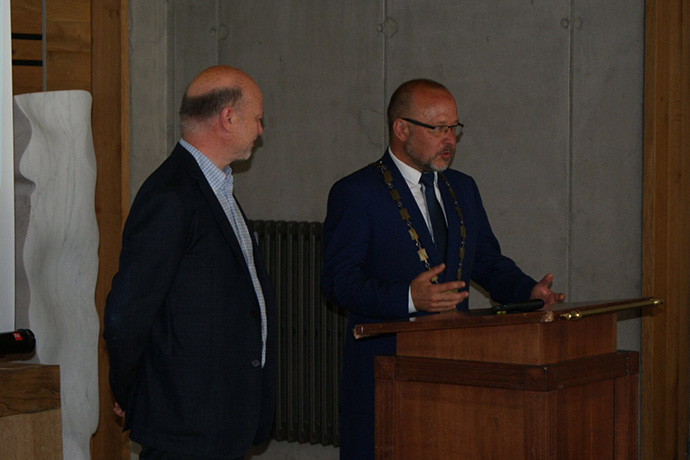
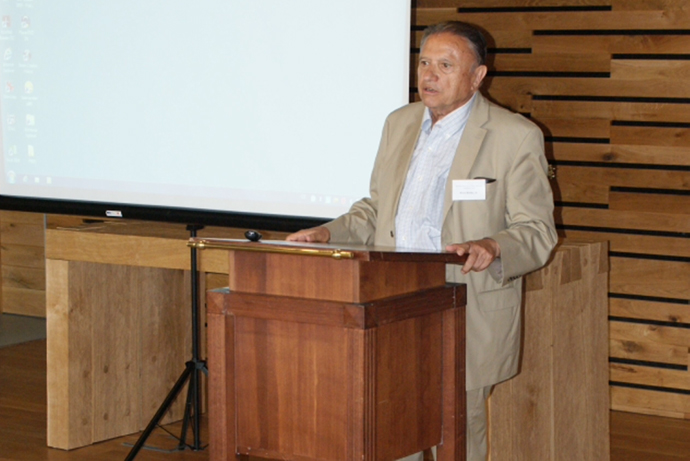
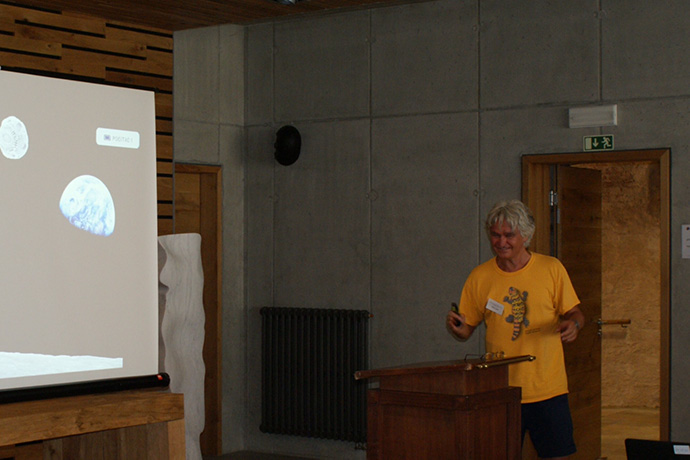
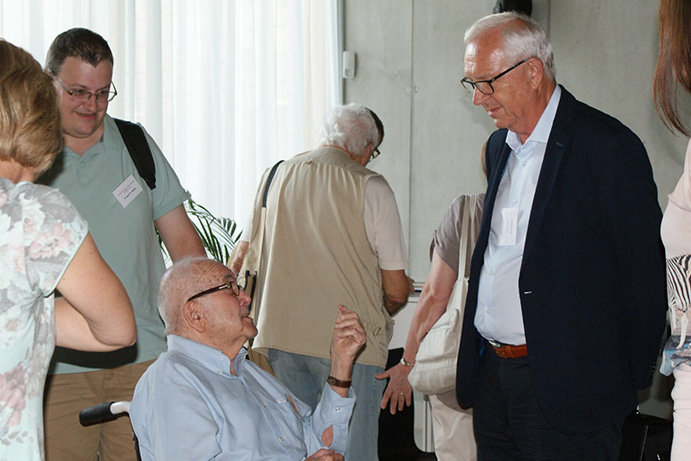
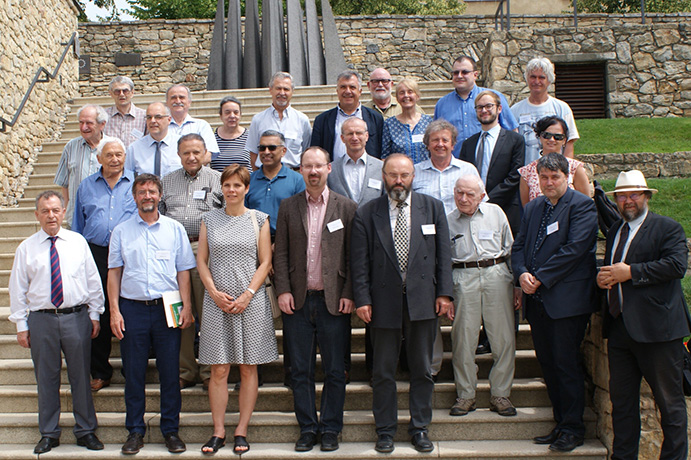
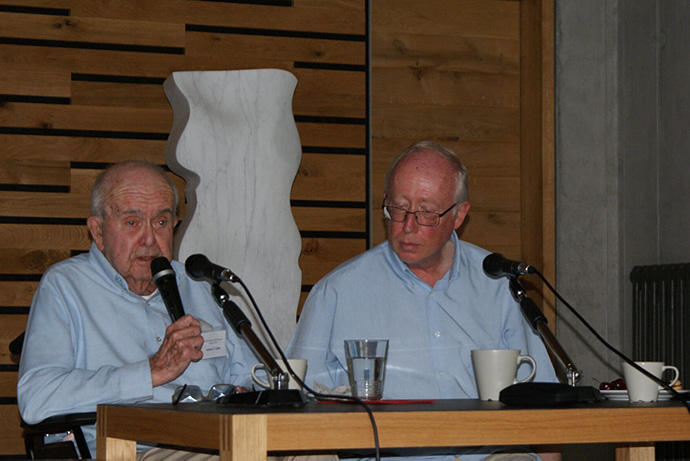
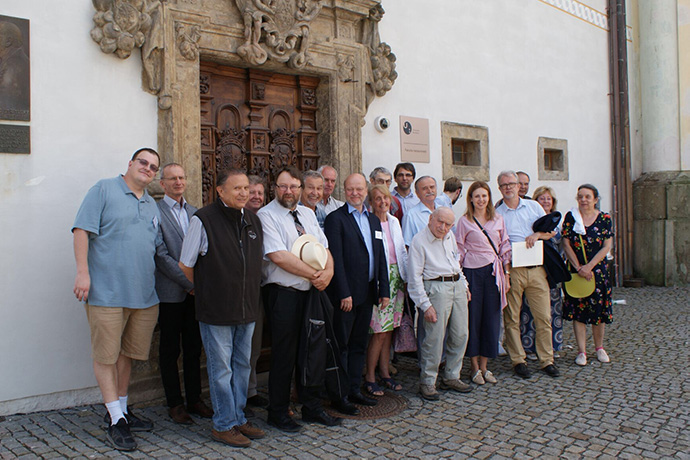
2019
The 2019 Conference of the Comenius Academic Club opened on June 21, 2109 at the Conference Center of Saint Peter’s University Hospital in New Brunswick, New Jersey. The Friday afternoon session was opened by a lecture of Juraj Iványi from London. Iványi demonstrated on example of his personal life experience „that science is without borders“, indeed. A prominent Czech physicist, Jiří Bičák introduced the details and significance of Albert Einstein’s tenure at the University in Prague in the early twentieth century. Karel Raška presented an example of „transatlantic transfer of science“ on the story of the discovery of blood groups by Karl Landsteiner in Vienna and his later work in America. He also analyzed the independent discovery of four blood group types by the Czech psychiatrist Janský. He also pointed to independent development of blood typing and transfusion service in Czechoslovakia before and during the war. At last, he discussed the history of the discovery and treatment of hemolytic disease of the newborn of both sides of the Atlantic. Pavla Křížová of the National Institute of Public Health in Prague described the final stages of the global smallpox eradication campaign and the significant role played by many Czech and Slovak physicians. The Friday session ended with a brief and cordial wine and cheese party.
The Saturday morning Humanities session was opened by a lecture of Milena Secká of the National Museum in Prague on Vojta Náprstek. The lecture was presented in Dr. Secká’s absence by Markétá Pánková. The session continued by a lecture on human behavior, characterized by procrastination. Petr Ludwig of Procrastination, Inc. in New York analyzed this problem and pointed to possible solutions on how to avoid it.
Jiří Málek, the President of the University of Pardubice analyzed the current system and state of evaluation of science in the Czech Republic. This ever changing topic stimulated a lively discussion.
Saturday afternoon was devoted to a tour of the campuses of Rutgers and Princeton Universities. The Comenians, besides the university campuses, saw where Hungarian freedom fighters found refuge after the 1956 uprising in World War II Camp Kilmer in Piscataway and the Princeton homes of Albert Einstein and Robert Oppenheimer. Saturday ended by a banquet at the well known Steakhouse 85 in New Brunswick.
Sunday session opened with a fascinating treatise on Dvořák in America by Michael Beckerman of New York University. The session was completed by an analytic presentation on the development of the art market in the Czech Republic and study of economic standing of the Czech art in the world by Matyas Kodl of the famous Prague Gallery.
The meeting had a very friendly and pleasant atmosphere and participants expressed their satisfaction with a well balanced mixture of natural science, humanities and art in this year’s program.
The next meeting in 2020 will be held in Prague.


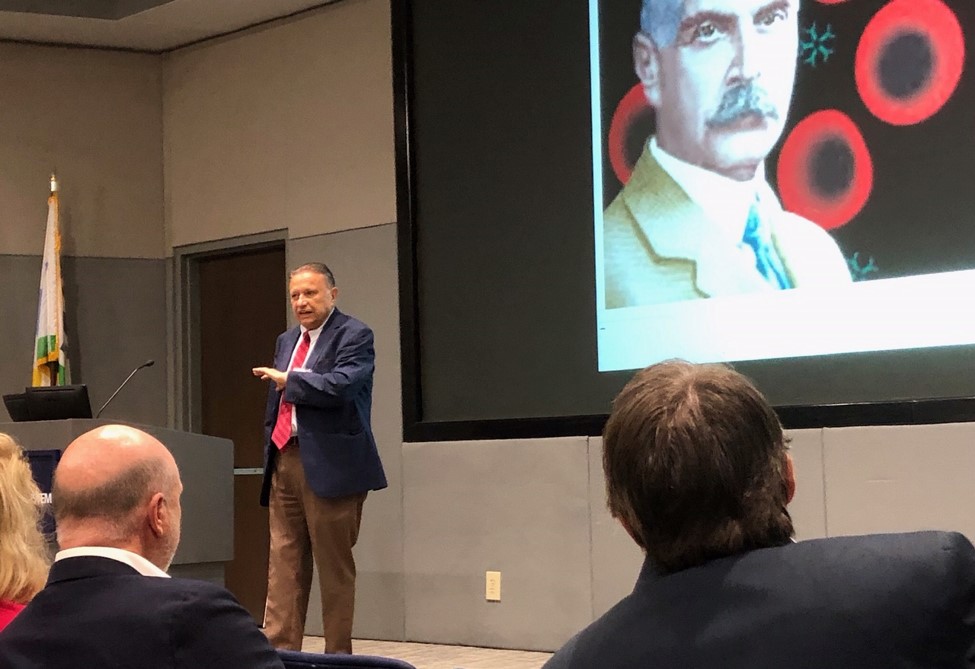
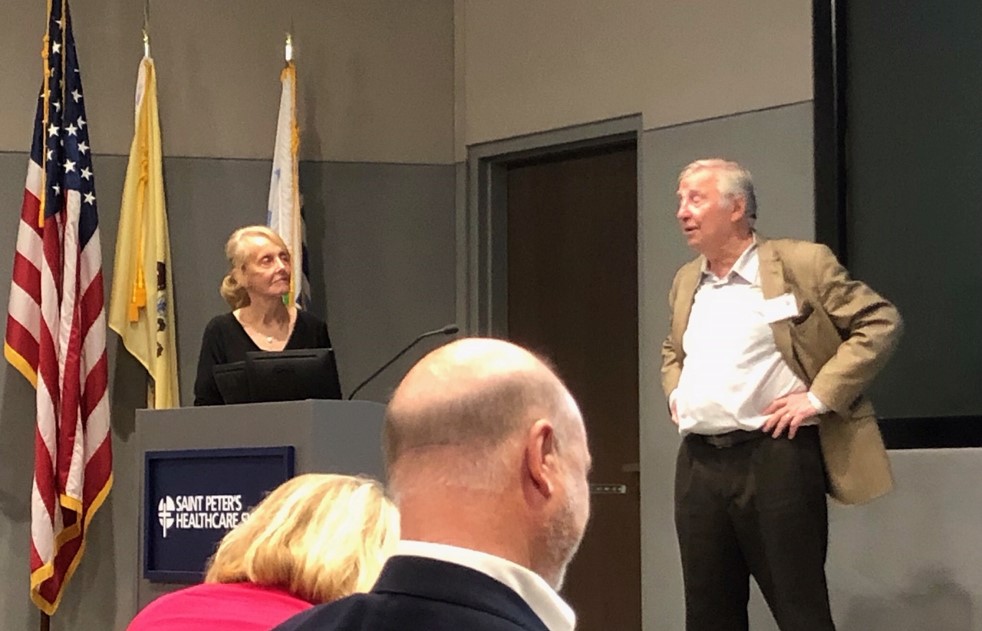
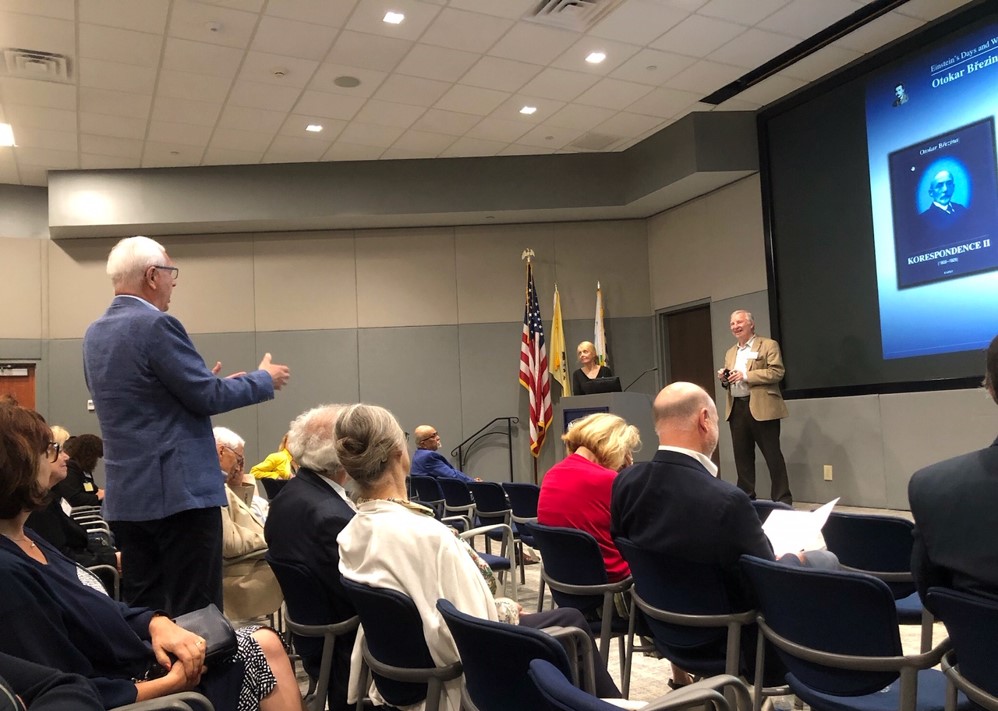
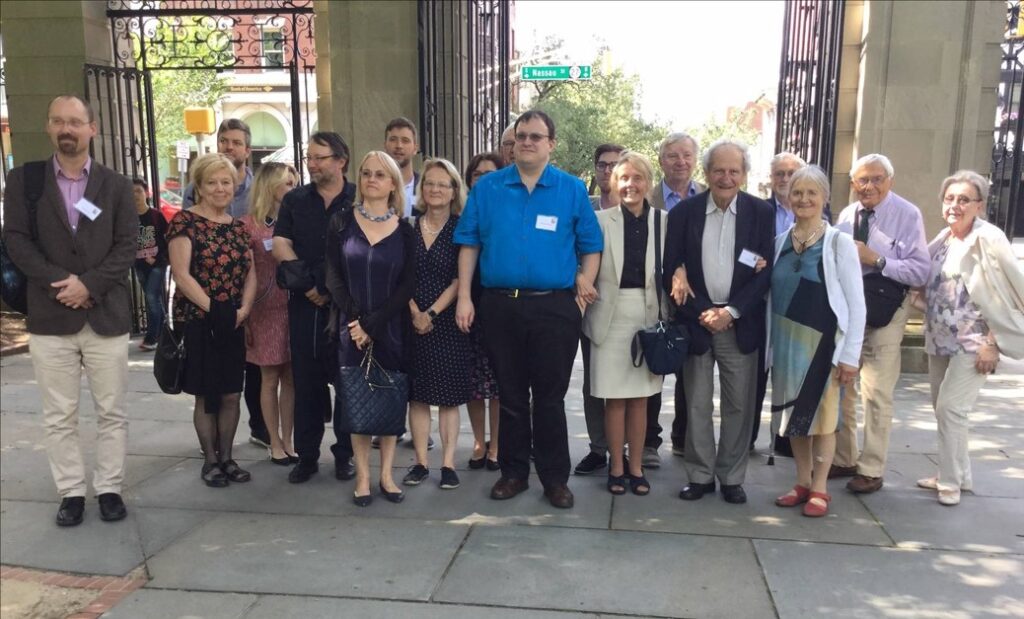
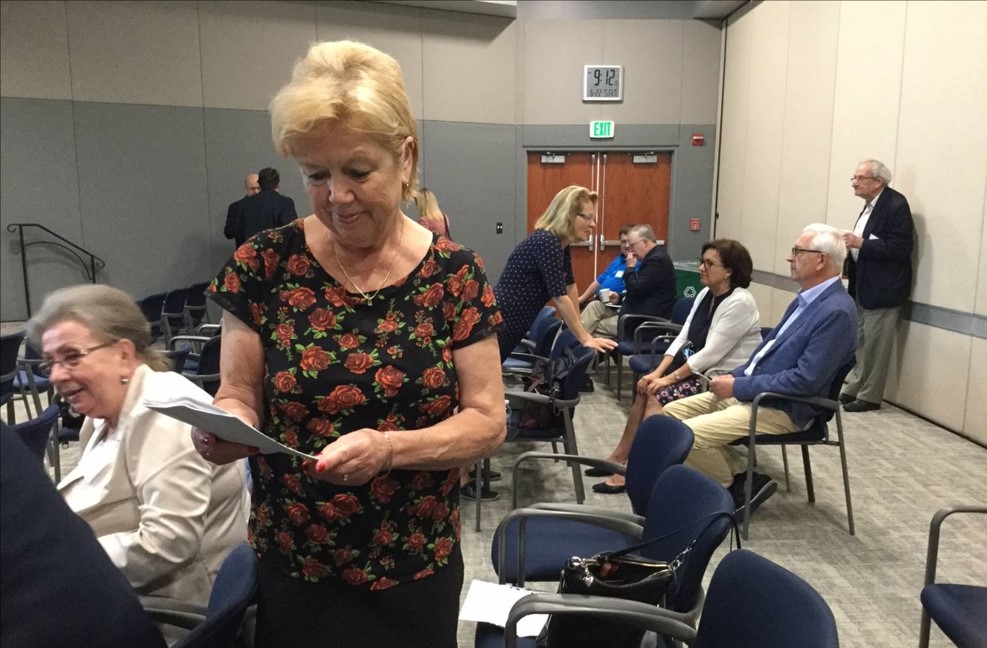
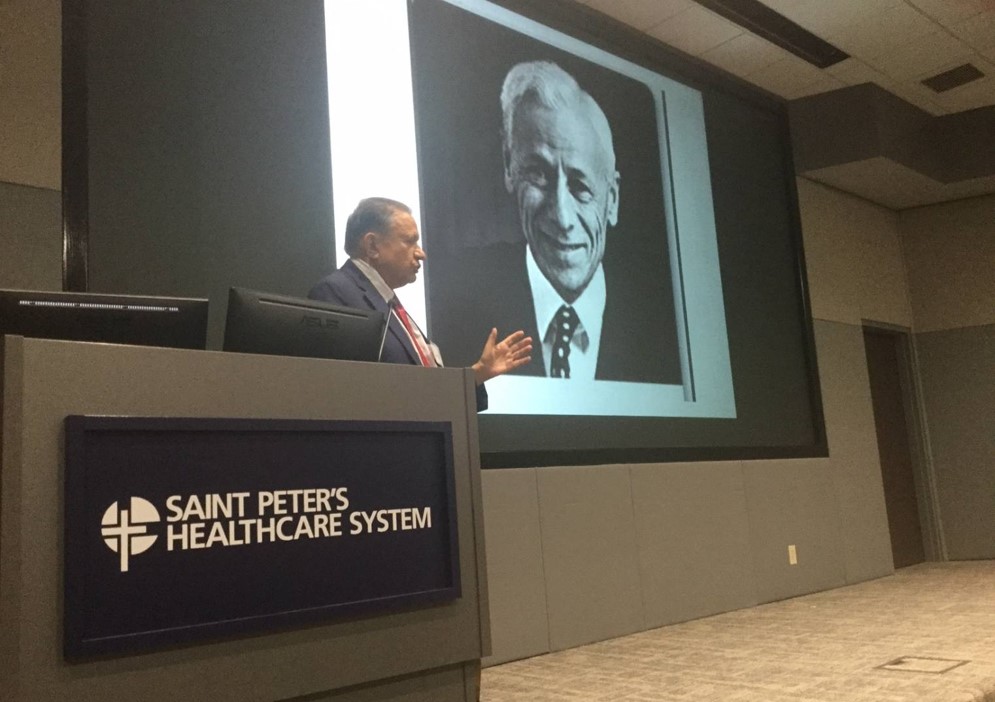
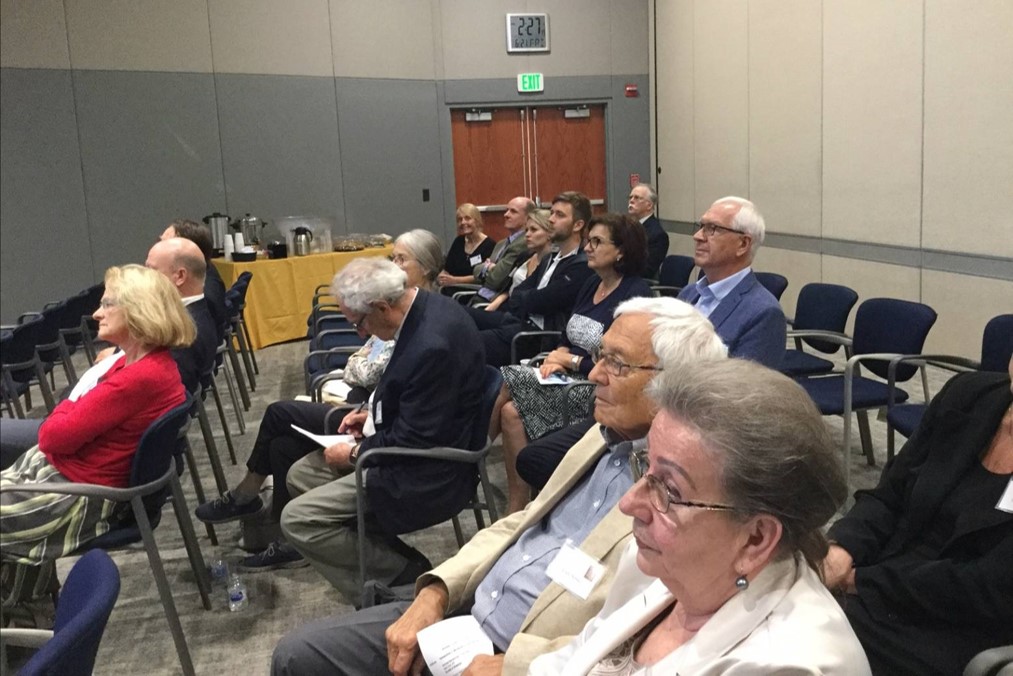


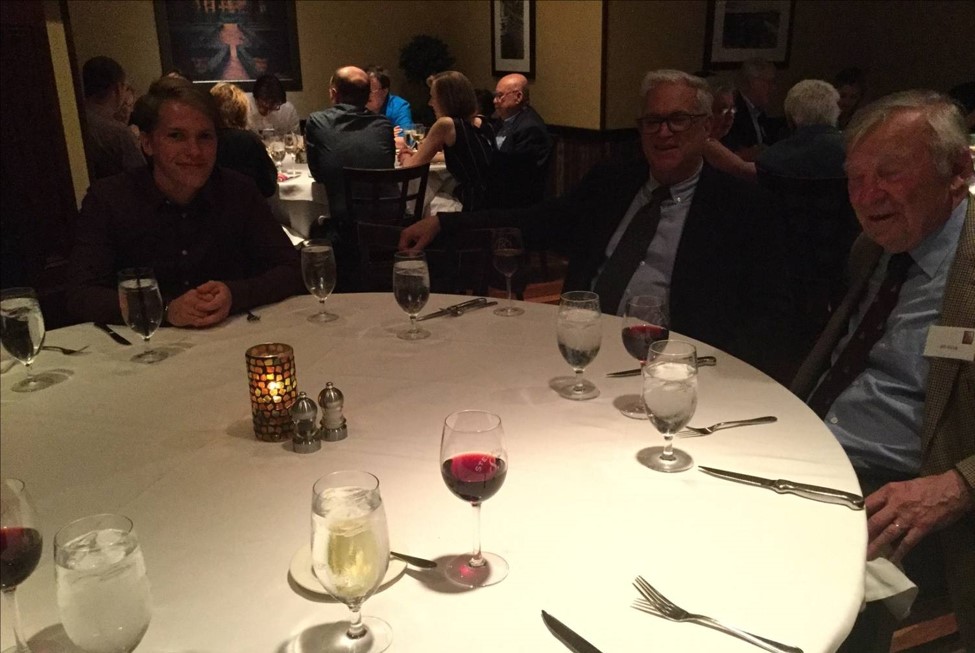
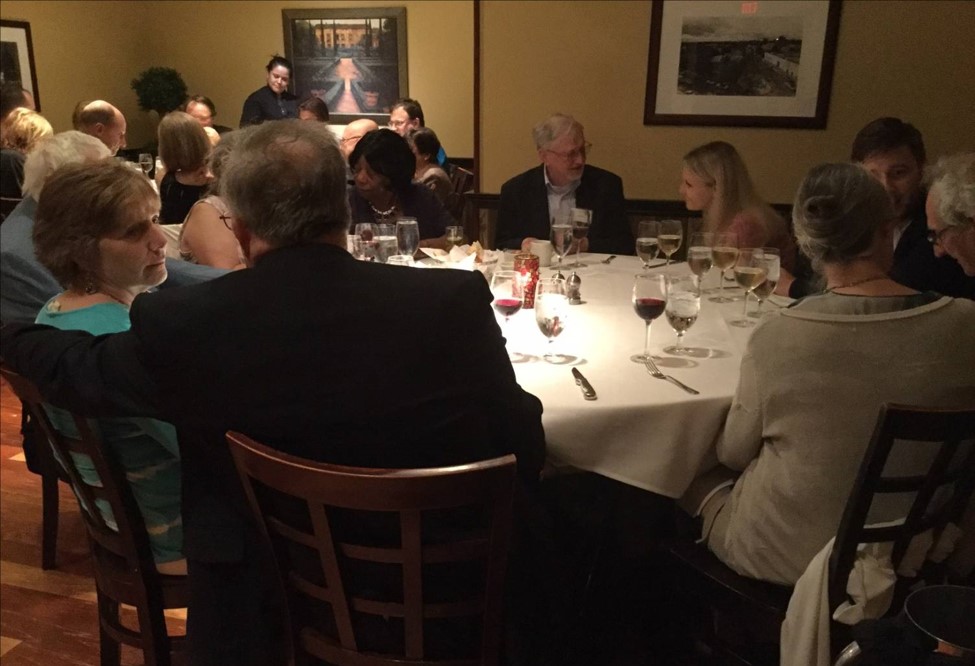
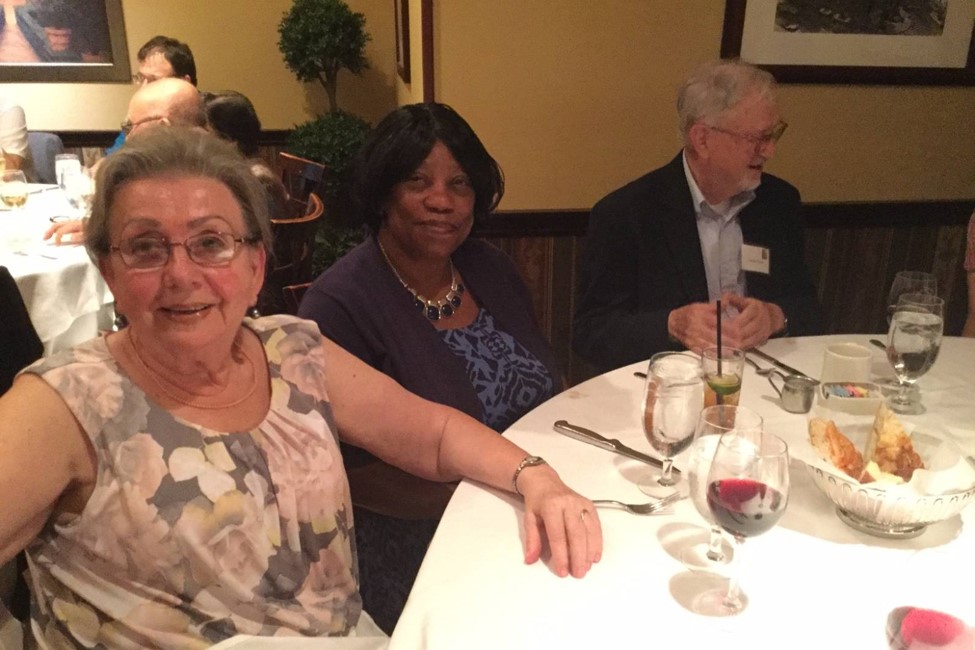
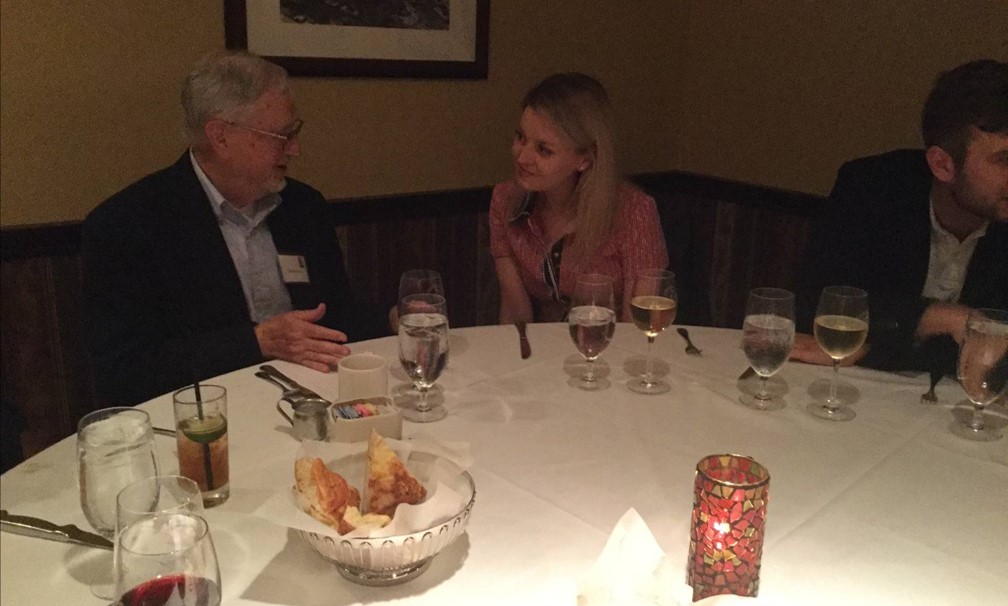
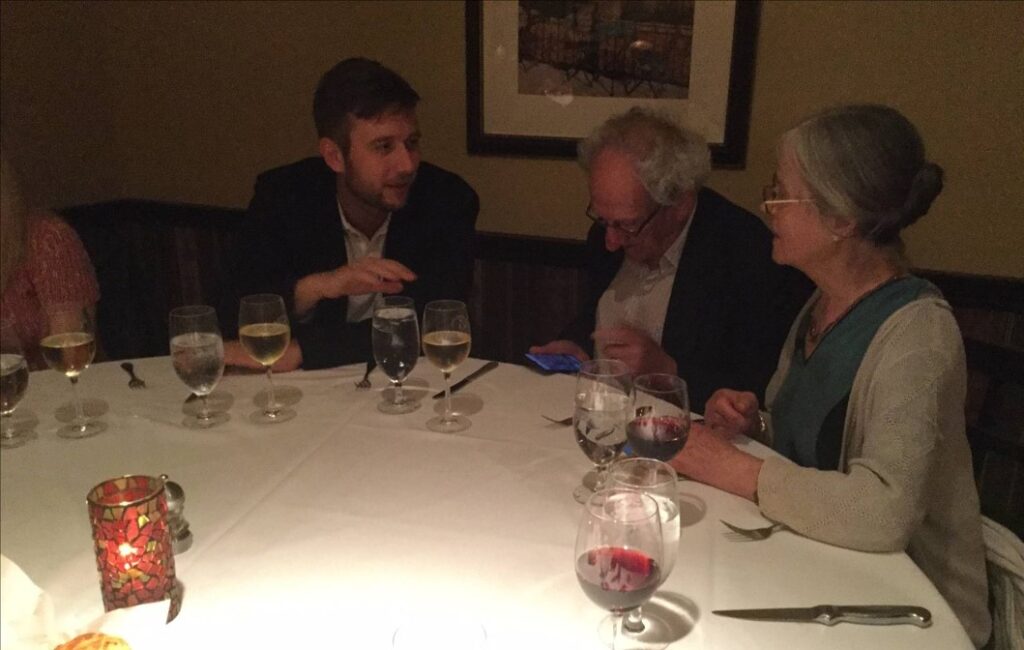
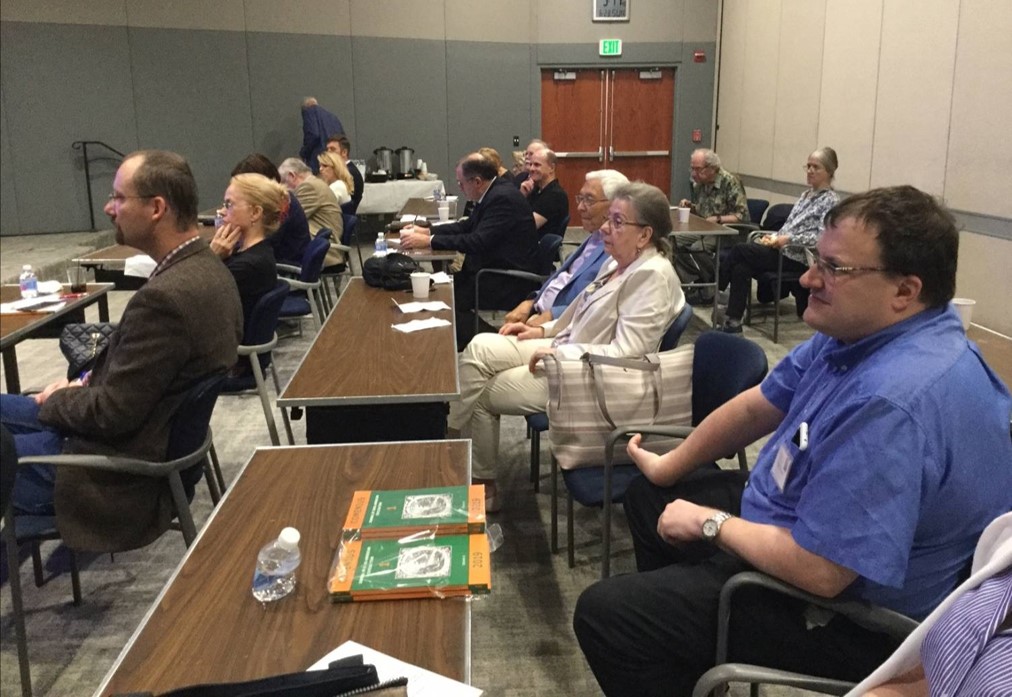
2021
CONFERENCE OF THE COMENIUS ACADEMIC CLUB AT THE J.A. COMENIUS NATIONAL PEDAGOGICAL MUSEUM AND LIBRARY, PRAGUE
The annual conference of the Club took place on 13-14 November 2021 in the midst of the coronavirus pandemic. Despite this, the program was uninterrupted and all scheduled speakers arrived. The J.A. Comenius National Pedagogical Museum and Library provided a beautiful and comfortable venue for the meeting. The only change was that the planned reception and dinner were replaced by a modified meeting with refreshments served in accordance with the prevailing sanitary measures.
During the first section of the conference, Libor Grubhoffer summarized the history of vaccination and its application in the fight against infectious diseases. Lukáš Kovanda analyzed the effects of the pandemic on the economy of the Czech Republic and concluded that the future will involve many challenges. Barron Boyd introduced the current situation of learning and instruction at the American universities and pointed out that, despite economic hardship at smaller institutions, most institutions survived the pandemic thanks to cooperation with local health authorities. A lively discussion ensued.
In the afternoon section, Jan Brábek introduced a novel approach to therapy of solid malignant tumors, which focuses on mobility and invasiveness of tumor cells with an attempt to prevent their spread throughout the body. Vladimír Tesař summarized in detail the etiology, signs. and treatment of the complex lupus erythematosus disease. He informed the audience of recent progress in treatment outcomes. The ensuing discussion was well focused and interesting. The traditional panel on the evaluation of science and universities in the Czech Republic was summarized by Jiří Málek. He explained what has transpired since the famous ”coffeegrinder” method of evaluation, which was introduced at the first conference of the Club in New York in 2013. He was assisted by Pavel Doleček,the vice-minister of education. While their conclusions were in general agreement, differences in approach and power by an “ academician”, on the one hand, and a representative of the state authority, on the other, were apparent.
On Sunday, the focus of the presentation was the Battle of White Mountain and the Czech defeat. Petr Vorel presented the importance a previously overlooked factor, namely the economic bankrupty of the ruler, rather than religious differences. Jaroslav Pánek analyzed the entire “White Mountain syndrome” and differences of future developments in the Czech Lands and Hungary within the Habsburg Empire. The debate on the topic was the longest of the entire meeting and the audience learned many new facts and were presented with novel interpretations of this period of Czech history. At the end of the meeting, Francis Raška summarized the state of the Comenius and its distribution to libraries at major universities in numerous countries. It was decided that the 2022 conference will be held in June in the Czech Republic in conjunction with other Comenius celebrations. On behalf of the Club, I would like to thank Markéta Pánková and the J.A. Comenius National Pedagogical Museum and Library for hosting this year’s meeting.
2022
CONFERENCE OF THE COMENIUS ACADEMIC CLUB AT THE UNIVERSITY OF PARDUBICE AND PARDUBICE CASTLE
The 2022 conference of the Comenius Academic Club took place on 17-18 June (Friday-Saturday) in the eastern Bohemian city of Pardubice. The University of Pardubice provided their facilities and the city administration kindly granted the conference organizers use of the quaint Pardubice Castle.
A number of interesting speakers from both the United States and Czech Republic ensured that the educational and cultural portion of the conference was lively and robust. Igor Lukeš of Boston University delivered the first lecture, which focused on the challenges to Western civilization precipitated by the Russian invasion of Ukraine. Eric Gottlieb (Rhodes College) then enlightened the audience with his reflections on the ongoing political debate over the role of mathematics in the American primary and secondary school system in the context of social and ethnic diversity. Michael Beckerman of New York University discussed the significance of Hugo and Pavel Haas, who were among the most successful cultural figures of the interwar Czechoslovak Republic. Jiří Málek and Libor Čapek of the University of Pardubice, as well as Štěpán Jurajda of the Research Development and Innovation Council of the Czech Republic, subsequently furnished a detailed overview of the criteria involved in the evaluation of scholarly results produced by public institutions and their subsequent impact on the financing of research.
On Saturday, an entire panel was devoted to existing and future treatments of pancreatic cancer. Radim Němeček of the Masaryk Oncological Center in Brno discussed the matter from the point of view of a surgeon, whereas Michal Holčapek (University of Pardubice) explained the potential of a new clinical test designed to achieve early detection of the disease, which potentially could drastically improve prospects for long-term survival. The previous day, conference attendees participated in a guided tour of the MEDILA Diagnostic Laboratory which, in collaboration with the University of Pardubice, is responsible for the development and administration of the clinical test. Petr Vorel (University of Pardubice) concluded the conference with a historical analysis of inflation in previous centuries. In the afternoon, participants had the option of viewing Petr Vorel’s numismatic exhibition or attending the famous Pardubice horse races.
We would like to take this opportunity to thank the conference organizers and presenters for making the event memorable. It was preliminarily decided that next year’s conference will take place in the Dutch city of Naarden where John Amos Comenius spent his final years. The venue would be the Comenius Mausoleum and Museum (Naarden), which collaborates closely with the J.A. Comenius National Museum and Pedagogical Library in Prague. All relevant information concerning the 2022 gathering will be provided at a later date.
2023
10TH ANNUAL CONFERENCE OF THE COMENIUS ACADEMIC CLUB
24-25 JUNE 2023 AT THE COMENIUS MUSEUM IN NAARDEN, NL
The Comenius Academic Club held its tenth annual meeting in the Comenius Museum in Naarden, which is also the site of Comenius’s final resting place. The program was quite diverse and included presentations from both the natural and social sciences. Our Dutch hosts, especially Jan Landsaat and Helena Verhoef, were most gracious and ensured the smooth progression of the gathering.
The opening ceremony included remarks by the president of the Comenius Academic Club, Karel Raška, and the director of the Comenius Museum, Eva Moraal, who not only welcomed the guests, but provided some background regarding the founding of the museum and its broad cooperation with similar institutions in Czech Republic and elsewhere. The first panel consisted of two presentations by Petr Souček and Eric Gottlieb respectively. The first presentation was dedicated to the serious eye disorder known as macular degeneration and new advances in treatment. This was followed by a discussion of mathematics and its aesthetic applications. The second panel represented the ongoing open discussion, moderated by Jiří Málek, concerning the evaluation of science and research in Czech Republic. In the evening, the Comenius Museum arranged a pleasant dinner reception at which participants were introduced to the unique nature of Dutch cuisine. The following day, an historical panel was held with presentations by John Exalto, Karel Rýdl and Petr Vorel. The first presentation represented an account of Comenius’s relationship with arms merchant, Louis DeGeer. The second lecture acquainted participants with the last ten years of Comenius’s life in Amsterdam and the third discussed the inflationary crisis that gripped Central Europe in the age of Comenius. The final panel included a talk by Milena Lenderová on the French-language “La Gazette de Baltimore” followed by a well-illustrated presentation by J. Barron Boyd and Eric Gottlieb concerning Rhodes College and Memphis, which will be the venue for the 2024 Comenius Academic Club conference. After some concluding remarks by Karel Raška and Petr Vorel, Francis Raška presented the most recent issue of the Comenius journal, which is celebrating the tenth anniversary of its existence, and delivered a call for papers for the second issue of 2023. Following the conclusion of the conference proceedings, Karel Rýdl provided participants with a detailed tour of the Comenius Museum.
We received positive feedback concerning the Naarden conference, which, by all accounts, can be considered a success thanks to the organizational prowess of Petr Vorel and Karel Raška, as well as the excellent quality of all presentations. The Comenius Academic Club would like to express gratitude to the Czech and Slovak Solidarity Council for providing financial support for the gathering. We look forward to next year’s conference in Memphis, which will be hosted by Rhodes College at the invitation of J. Barron Boyd and Eric Gottlieb.
